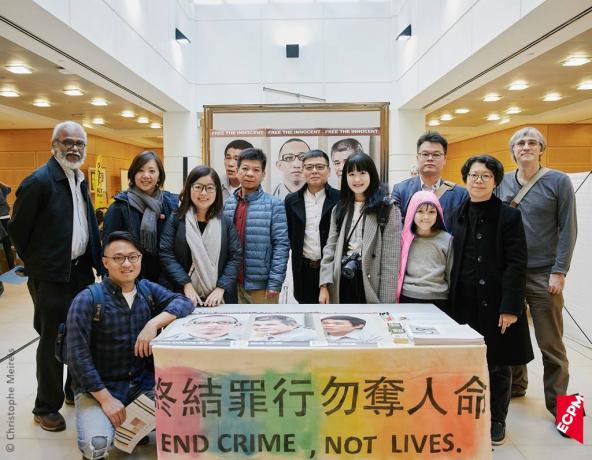According to Taiwanese civil society, new President Tsai Ing-wen might relaunch debate on the abolition of the death penalty
A more suitable political context on the pathway to abolition?
“While capital punishment remains relatively popular in Taiwan, Lin Hsin-yi, Executive Director of the Taiwan Alliance to End the Death Penalty, has pointed out that none of the KMT lawmakers who attacked the DPP over the abolition of the death penalty have been reelected. For her, “this congress is more friendly to human rights.” What will this mean for the death penalty in Taiwan?” (…)
“The Taiwan Alliance to End the Death Penalty (TAEDP) has observed that, “all the executions since 2010, when the four-year moratorium was lifted, took place when the government approval rate was low.”
The new president has to deal with conflicting pressure on the abolition of the death penalty
“While advocates for the abolition of the death penalty have felt Tsai Ing-wen hasn’t been explicit enough in her position, KMT lawmakers have challenged her for supporting abolition. Among them was Alex Tsai, who was quite vocal on pro-death penalty issues during his campaign but was ultimately not reelected. This failure for pro-death penalty lawmakers points to a possible decrease in voter emphasis on maintaining the death penalty. This presents the best opening for a return to a moratorium and steps toward abolition without sacrificing political capital for the DPP.” (…)
“Tsai Ing-wen is likely to face conflicting pressure moving forward, says Lin of TAEDP. The new president may face public pressure to carry out an execution from those in favor of continuing the death penalty.”
The Taiwanese civil society urges President Tsai to implement a moratorium on executions
“Until a more thorough investigation into the use and potential political abuse of the death penalty takes place, Taiwanese human rights groups say Tsai should announce an immediate moratorium. She should promise to more closely implement the ICCPR and encourage the Legislative Yuan to establish a National Human Rights Commission in line with the Paris Principles. Although in December the Executive Yuan granted a Freedom of Information Request filed by TAEPD last August requesting the Ministry of Justice to reveal its decision making process on signing execution orders, the system remains far from transparent. How Tsai responds to these issues leading up to and following her inauguration in May will matter.”
Link to the full article: http://thediplomat.com/2016/02/taiwan-can-tsai-ing-wen-change-the-politics-of-death/
Categories
Taiwan






